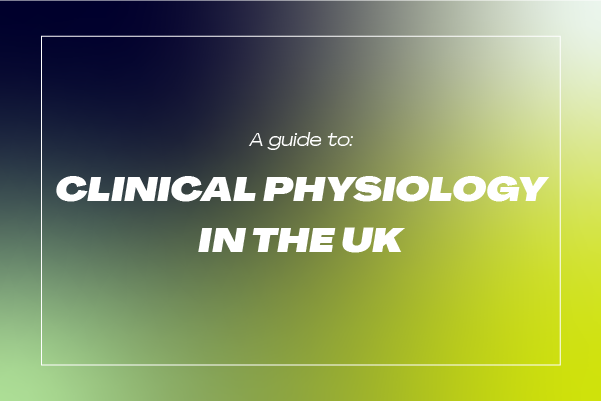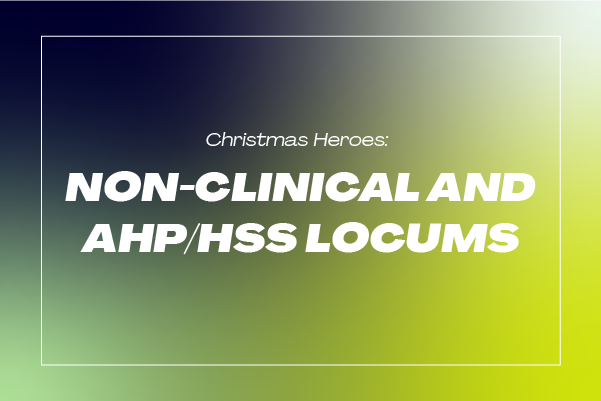We spoke to Harman, an Oncology Nurse working with the Specialist Nursing team here at Your World, about his career and his work as an agency nurse.
Harman: "I was lucky to join the NHS through a government recruitment drive. I received my training as an Oncology Nurse at Johns Hopkins University Hospital in the Middle East. My career later took me to The Royal Marsden Hospital and a subsequent role in a private hospital. Oncology nursing is a noble profession that demands dedication, compassion, and a drive to help others.
In nursing oncology jobs, it is crucial to provide complete patient care. Nurses must manage treatment side effects. They also need to support the emotional and educational needs of patients and their families.
As oncology nurses, we play an important role in the healthcare team. We often manage complex chemotherapy plans and control symptoms. These are key parts of cancer treatment.
Oncology nurse jobs are at the heart of tackling the increasing global burden of cancer. Our contribution is unique because of the scale and the diversity of care roles and responsibilities in cancer care.
Good communication and people centred care, but they play a critical role in oncology nursing positions. Encouraging oncology nurses to participate more in research is important. It shows the significant impact of nursing care in the team. Supportive care, empowering patients to manage their health, significantly enhances the efficacy of clinical outcomes."
Is oncology nursing a rewarding career to pursue in the UK?
"The career of an oncology nurse is challenging but offers great rewards. This career focuses on lifelong learning and personal growth. It offers a chance to make a real difference in the lives of people affected by cancer. Advanced treatment options like hormonal therapy, immunotherapy, and newer oral therapies keep the field dynamic and exciting.
During my career in oncology, I have often heard nurses say they love their work. They enjoy the relationships they build with patients and their families. “Patients let you into the most intimate aspects of their lives.”
Could you outline the key qualifications and training necessary for a career in oncology nursing?
To become an oncology nurse in the UK, you need to earn a nursing degree or diploma. After that, register with the NMC by passing the OSCE. You should also gain experience working in cancer wards. Specialised training in procedures such as cannulations, phlebotomy, and central line care, along with certifications from chemotherapy courses, are highly beneficial."
Based on your experience, what are some good strategies for handling job applications and interviews?
"To handle job applications and interviews well, show your knowledge of oncology nursing. Highlight skills that fit oncology roles. Also, express your enthusiasm for ongoing professional growth."
How has working with Your World Nursing and Dan helped your career in oncology nursing and professional development?
"My recruitment team at Your World Nursing, led by Daniel Britton, aims for a healthy work-life balance. They believe this is important for nurse well-being. As agency nurses, we have more control over our schedules. This helps reduce burnout, which is important for nurse engagement and a long career.
Daniel and his team focus on professional development. This is essential for improving the nursing profession and providing high-quality care.
They offer opportunities for continuing education. Through their dedicated compliance team, they ensure I am always up to date with my training. This alone empowers nurses to improve patient care continuously.
Working with Your World Nursing has given me many experiences in different healthcare settings. This has improved my skills and knowledge. This flexibility has been immensely helpful at the Bulstrode Unit at The Princess Elizabeth Hospital in Guernsey. It shows my skills to both colleagues and patients.
Despite the common stigma that agency nurses face, Daniel's support has never wavered. Many see them as just temporary fixes, not as real contributors to the unit. His proactive approach in ensuring my integration and satisfaction at work has been invaluable.
This support led to my nomination and win of the "Angel of the Year" at the Pride of Guernsey Awards. I am grateful for the strong support from the community and my colleagues. This recognition is a testament to the impact that dedicated nursing care can have. Irrespective of one's status as a permanent or agency nurse.
The jurors for this award said they chose me because of my positivity, empathy, and kindness. The Guernsey Press said, "During an incredibly tough time in life, having someone who is positive is immensely helpful." Harman Cervales is obviously making a lasting impression on those that are unfortunate enough to pass through his care. Well done Harman and thank you for bringing your knowledge, your experience, your expertise and your positivity to Guernsey."
Daniel’s continuous support helps overcome the challenges of agency nursing, from combating professional isolation to addressing the misperceptions associated with our roles. His regular check-ins and support have helped me succeed in tough situations. They have also strengthened my commitment to offer caring and skilled care.
A patient described me as "A Ray of Sunshine on their Darkest Days." Positive feedback from the Guernsey Press underscores the significant, positive impact we can have in our patient’s lives. Daniel’s commitment to fostering a supportive and empowering environment has been essential in this journey."
What are some common challenges you face in your role, and how do you overcome them?
"Working in oncology can be emotionally taxing, especially when dealing with palliative care patients. I find it can be a bit challenging and mentally draining at times. Clinical supervision and a supportive work environment help mitigate these challenges. I try my best to separate my own personal life from my work life so that means living my work load at work.
Also, I work to change the idea that agency nurses are less skilled. I believe in the professionalism and expertise that agency nurses offer.
To overcome this challenge, I learned from my years as an agency nurse. I stayed calm and worked hard. I used all my skills and let my work speak for itself. This way, I could help change their perception.
Lastly, to avoid getting burnout, I like taking some walks and hiking in the summer and go out with friends."
What are the job opportunities available within oncology?
"Patient care is always my primary responsibility. I range from administering treatments and medications to monitoring patient and managing symptoms of side effects. This role may also include giving emotional support to patients and their families. It helps them deal with the challenges of a cancer diagnosis."
Job Opportunities:
Direct Patient Care
The daily tasks of patient-centered care include checking a patient’s physical condition, managing pain, and giving chemotherapy. It also involves explaining treatments and possible side effects in detail.
You will work closely with a team of healthcare professionals. This team may include doctors, social workers, and dietitians. Together, you will create a complete care plan for your patients.
Several specialty roles exist within the broader scope of oncology nursing as well. For instance, paediatric oncology, gynaecology oncology, or heamatologic oncology, among others. Each specialty involves additional knowledge and training.
Education and Counselling
As an oncology nurse, you also help educate patients and their families. You explain the disease, treatment options, and possible side effects.
You also discuss the overall prognosis with them. You may need to give advice on lifestyle changes. These changes can improve patients' well-being and make their treatment more comfortable.
Your role includes counseling patients and their families. You help them deal with the emotional impact of a cancer diagnosis.
Research
You may be involved in clinical research aiming to find better ways to prevent, diagnose, and treat cancer. As a key member of the research team, you will collect data and help with analyses. You will also ensure that researchers follow the protocols. Additionally, you will help patients understand their role in these studies.
While handling these tasks, it’s important to follow the set ethical guidelines. You should also provide care that is both skilled and respectful.
Specialties Within Oncology Nursing
As you progress in your nursing career, you might work in various NHS trusts.
In this domain, a range of specialties are accessible for you to explore. The department that Your World Nursing agency assigns you to can affect your choice to change specialties. If the specialties match your skills and the team treats you well, it can motivate you in your career.
Nursing in Surgical Oncology
Being a nurse in surgical oncology, you'd be involved in surgical operations for cancer patients. Your duties would encompass pre-surgery care, assistance during the operation, and post-surgery care. You'd also play crucial roles in educating patients, managing pain, and caring for wounds.
Nursing in Radiation Oncology
In radiation oncology, you will help patients getting radiation treatment. Your job may involve assisting radiation oncologists and managing side effects of therapy. You will also provide emotional support to patients and their families.
Nursing in Paediatric Oncology
Nurses in paediatric oncology work only with children and teens who have cancer. In this field, you can help these young patients with their treatment. You will provide medical care and emotional support. Because of the patient’s age group, healthcare providers need a deep understanding of child development and family dynamics.
Gynaecology Oncology Nursing
In gynaecology oncology nursing, the focus is on women with reproductive cancers. Patient education and providing emotional support during all phases of treatment are essential in this field.
Haematology Oncology Nursing
In this subset of cancer care, you look after patients with blood cancers. This could include diseases like leukaemia.
What resources have been most beneficial for your ongoing education and staying abreast of advancements in oncology nursing?
"Continuing Education (CE) programs are pivotal in enhancing my clinical competency as an oncology nurse. These programs offer many learning opportunities. You can find conferences, workshops, online courses, and hospital training.
Check resources like the UKON website for more information. They offer not only theoretical knowledge but also practical skills that directly improve patient care quality.
Staying current with healthcare practices is critical in the ever-evolving medical field. CE programs keep me updated on the latest treatments, technologies, and best practices. This ensures I provide the best care possible to my patients.
Ongoing education is important for keeping skills up to date. It helps in handling new clinical situations. This training improves decision-making skills and builds confidence.
Moreover, these programs foster a collaborative environment, allowing for peer interaction which is essential for professional growth and teamwork. Using these educational resources regularly helps me stay updated. This knowledge allows me to improve patient care and grow in my career."
Ongoing learning is essential to my job as a nurse. It helps me keep up with the latest healthcare trends. This way, I am always prepared to face the challenges of modern medical care.
What advice would you give to nurses just starting their career in oncology within the NHS and with an agency?
"Speak Up: Always voice your concerns or questions. Your insights can significantly influence care and improvements in practice.
Join Professional Networks: Engage with organisations like the RCN, UKON, and other cancer-related charities. Being part of these communities not only supports professional growth but also provides a supportive network.
Embrace the Journey: Recognise that your nursing career will have its ups and downs. Patience and resilience are crucial as you gain experience and navigate challenges.
Build Relationships: Connect with trusted colleagues. They can be mentors, coaches, or friends who understand the stresses of nursing.
Stay Curious: Asking questions helps you learn better. It also boosts your presence and impact in the team.
Commit to Lifelong Learning: Understand that nursing is an ever-evolving field. Continuous education and adaptation are key to personal and professional fulfilment. "












